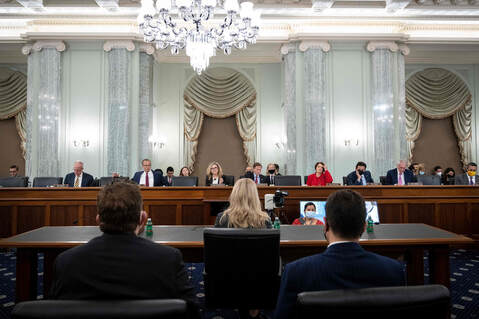What is a whistleblower?
Does federal law protect whistleblowers?
In 1989, Congress passed the Whistleblower Protection Act, guaranteeing that federal whistleblowers would not face retaliation if they reported misconduct within their departments. The law protects any employee who reports illegal activity as well as “mismanagement, gross waste of funds, abuse of authority or a substantial and specific danger to public health and safety” taking place in their offices. The more recent Whistleblower Protection Enhancement Act of 2021 similarly protects federal employees from retaliation.
For non-federal public employees with reports outside of this criterion, the Occupations Safety and Health Administration (OSHA) has a program that enforces 20 statutes the government has in place to prevent employers from retaliating or discriminating against civilian whistleblowers, called the Whistleblower Protection Program.
In 2014, the Supreme Court in Lawson v. FMR LLC extended Sarbanes-Oxley protection to some public workers—namely private contractors and subcontractors of public companies and privately-owned companies that provide services for publicly traded companies.
Does Texas law protect whistleblowers?
The Texas Whistleblower Act prohibits a state or local governmental entity from taking adverse personnel action against a “public employee who in good faith reports a violation of law by the employing governmental entity or another public employee to an appropriate law enforcement agency.” The elements of a Texas Whistleblower Act claim are: (1) the plaintiff was a public employee; (2) the defendant was a state agency or local government; (3) the plaintiff reported in good faith a violation of law to an appropriate law enforcement agency; and (4) the plaintiff’s report was the but-for cause of the defendant’s suspending, firing, or otherwise discriminating against the plaintiff at the time the defendant took that action.
The term “good faith” means that the employee believed that the conduct reported was a violation of law and the employee’s belief was reasonable in light of the employee’s training and experience. An employee’s mistaken belief that she is reporting a violation of law to the appropriate law enforcement authority is still in good faith, and she may still be protected by the Act, if the employee believes the governmental entity is authorized to either regulate under or enforce the law alleged to have been violated in the report or to investigate or prosecute a violation of criminal law and the employee’s belief is reasonable in light of the employee’s training and experience.
An appropriate law enforcement authority to which a public employee can report a violation of law, the authority must have outward-looking powers; it must have the authority to enforce, investigate, or prosecute violations of law against third parties outside of the entity itself, or it must have authority to promulgate regulations governing the conduct of such third parties. The authority must be actually responsible for regulating under or enforcing the law allegedly violated and must have law enforcement authority over third parties outside of the entity.



 RSS Feed
RSS Feed